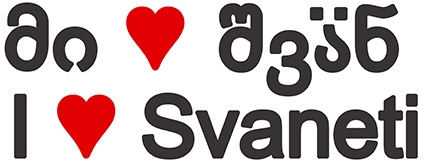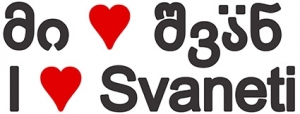Lexicon Rubicon: Svaneti
Tony, really? You’re walking us through a dictionary? Desperate for new material, or what’s the deal?
Hey, humor me, Reader; it won’t be as boring as it sounds. Really.
One of my most expensive—not to mention rare and precious—books is an almost unbelievable Svan-English dictionary, hardback, a kind gift from friends in the USA where it was printed. The language has turned up quite a few unexpected gems so far in my mining of this book. And an idea.
One thing which strikes me is the number of very special words which point to matters of belief or superstition, indicating the ongoing position of animism among the Svans despite the Orthodox Church having had a strong presence here since ancient times, possibly since the 6th century AD. The fact that these words persist in Svan says a lot about its speakers. Not just the possibility of describing something in two or more words, which one could do with any concept in probably any language; but having that meaning wrapped up in one word. You’d perhaps not think that there are such differences between languages, right? Well, my Svan friends, all of whom also speak fluent Georgian and often good Russian as well, say that not even Georgian gives them anything like the richness of communication that Svan, their real mother tongue, does.
Other items I have included in the sampling below are words to be found by coincidence in English; seeming translations from Hebrew; some comparisons with modern Georgian, which diverged from Svan about 4000 years ago and lost many of the Old or proto-Georgian words which Svan retains; and a few sheer oddities.
A note on pronunciation: Svan is, among its four dialects, far more generous than Georgian in vowels; the latter has only five, the former eighteen, some of which are also to be found in English, others not. There is, for example, a plain “a”, one with an umlaut (two dots), one with a horizontal line, and one with both umlaut and line; and similar variations for the other Georgian vowels and beyond. In addition, all of the great variety of Georgian consonants are present in Svan, as well as a few others represented by Old Georgian letters now extinct in modern Georgian. The Latin-based orthography below is partly the dictionary’s standard, partly my own, avoiding an excess of diacritical marks where possible. An apostrophe indicates aspiration of the sound preceding it.
Some of my findings:
ajem—to somebody's good fortune (e.g. that something has not occurred)
ak'eldam—burial vault (cf. Hebrew akeldama)
apsāsd—deity of wild animals, half human, half bird
ara—eight (Georgian—no)
arabara—identical
bak'ārob—tribal or family enmity
bäng—strong drink
barbläy—consecrated animal for St. Barbara
bich' (pronounced "bitch")—bastard, illegitimate child (cf. Ge. bichi—boy)
bliw—defective person
chäch—mourning beard (not shaven 40 days after the death of a relative)
ch'or—payment for blood by vendetta
dāew—(mythological) dev (demon-forest-man who may appear in the shape of a man, horse, &c); idiot
däl—(mythological) Dali (name for the rock dwelling goddess of aurochses; sometimes she appears in the
shape of a white aurochs)
dēra—snow and ice left by avalanche or covering a frozen river
dzapra—unbearable state
Etseri—name of a village between Pari and Becho, the village where I live; cf. Heb. ezer—help (found as a
man's name in the Georgian translation of the Old Testament book of Genesis, spelt exactly like the village
name)
esiyesin—sometimes
gad—peculiarity
gärglamäykhak'u—of course
gergäy—animal consecrated for St. George
giga—aunt
gudmetsä-l, -r—wizard prophet
gwär—family name (cf. Ge. gvari—family name)
gwäre—skin
gwirk'äy—animal consecrated for St. Kvirike
gwläboshäy si!—be burned! (Mulakhi village malediction)
ham—morning
heshmäy—devil (cf. Ge. eshmak'i—devil)
käzh—horned devil (dwells in forests)
kwinmeqwle—witch ("with separated soul"—may turn herself into a cat)
ghērbet—God (cf. Ge. ghmerti—god)
lakhvär—goblin living alongside his human patron and serving him by stealing wealth from neighbors
jgǝrāg—St. George (God), one of the three persons of the Svan Trinity (God, Jesus Christ, St. George)
leg—bad
limzir—1. to pray; 2. to participate in any customary religious ritual (no word exists for ecclesiastical liturgy)
māma—no, Upper Bal dialect (Ge.—father)
manzawāer—toxic (only of honey!)
mejär—ice-covered snow on spring mornings
meysärob—Ge. Meisaroba (religious feast connected with horses)
nakun—inspired: drunk of by somebody; caused by an unknown reason (spirit)
nänch'īr—tormented by one's own past life
napānun—something to be hallowed
näshdbīrwäl—(plural) days "lent" to March from February
nats'or—he who has taken revenge
nach'wlash—property-compensation given in reconciliation for taking a wife from the enemy's family
pādāes—crowd of rescuers
print'—sound of striking a stick against the head
qarw—the gap between two neighboring teeth
qer—1. holy fire by night going from one church to another and associated with a special angel; 2. sow
(female swine)
rwent—heroic personage of Svan folklore
sgim—mineral spring
shäshish—deuce, devil (very small)
t'qär—mythical creature dwelling in forests or rocks
tsukhw—small likeable devil
Ushguli—village name (possibly contracted from Ge. "ushishari guli"—fearless heart)
tǝgir—a stick (for sacrifice to the deceased) with fruits or hard-boiled eggs fixed on its tip; such sticks are
vertically fixed on a slice of bread or meat on the reminiscence table (e.g. 40 days after the death)
ts'qǝlyän—1. clean; sacred, holy; 2. silver
twäl—magic, spell
tkhän—frightened animal
unqws—interjection typical in the speech of demons
ura-urda—without past (i.e. "he has not been!"—curse said of worthless persons)
urts'qul—impure; the evil spirit
uskhwäj—ox consecrated to the thunder deity
wäjmiya—woe is me
war—refusal (Ge.—uar)
werb—eagle
weshgim mechem—one who follows close behind (e.g. at a funeral)
wet—almost
wo ser—enough!
zad—sprouting grain of barley used for making whiskey
zedäsh—sacral vodka
zhur—person lacking an enquiring mind
A tiny sample, but I hope it goes towards proving my point: that the words themselves found in a language say a lot about that language’s speakers. And now you can stun your Svan friends with an imprecation, blessing or other utterance in a tongue spoken by less than one percent of Georgians! (Use at your own risk.)
Tony Hanmer runs the “Svaneti Renaissance” Facebook group, now with over 1200 members, at
www.facebook.com/groups/SvanetiRenaissance/
He and his wife also run their own guest house in Etseri:
www.facebook.com/hanmer.house.svaneti











